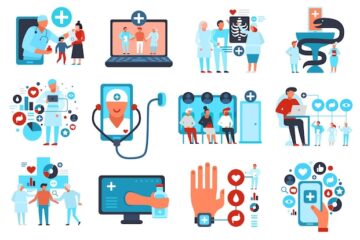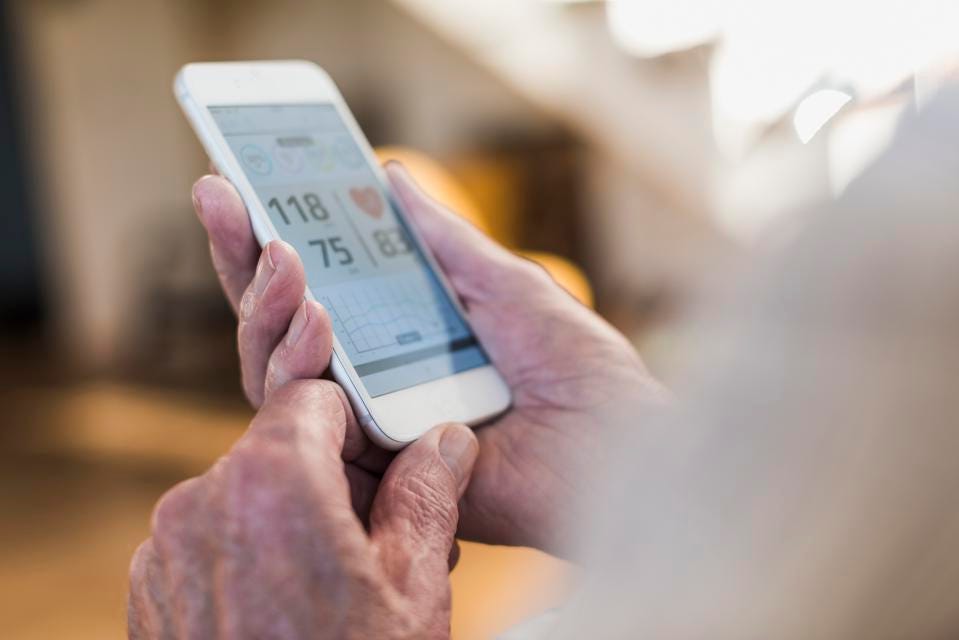
Contents
mHealth apps could help improve patient self-management as long as patients use them for long periods of time, research shows.
mHealth and electronic self-management devices may influence positive patient behavior changes when paired with strong patient engagement and prolonged use, according to a recent study in the Journal of Medical Internet Research.
With 69 percent of Americans keeping track of some sort of health factor, and another 21 percent using mHealth to do so, new research highlights the importance of healthcare professionals better understanding how these tools influence patient self-management.These factors have led to an interest in integrating novel self-monitoring systems into wellness programs, chronic condition management, and the diagnosis of acute episodes,” Steinhubl et al. wrote. “This makes understanding health self-monitoring in these systems an important first step in incorporating these technologies into routine patient care.”
The researchers used the web-based Walgreens Balance Rewards for health choices program to better understand how incentives-based self-management tools influence behavior change. The Walgreens app rewards patients for recording their healthy behaviors with points they can apply to their Walgreens purchases. Through a portal app, patients can also set wellness goals.
Using data collected from 2014, the team examined overall participation patterns and how automatic activity tracking contributes to tool utilization.
Overall, 455,341 users enrolled for the Walgreens app in 2014. However, 34 percent stopped using the app after their first log-in. The researchers found that this to be consistent with published literature.
“In this regard, we believe that identification and understanding of the characteristics of these individuals, and factors that promote interest or motivate behavior change is critically important in this rapidly evolving field,” the researchers asserted.
The research team also identified patient populations who stayed adherent to the program. Overall, 31.2 percent of users quit within one week of app use, and 49.88 percent quit within one month of use.
These patients may have stopped using the Walgreens app because of various technological issues. For example, they may have encountered usability issues, a lack of provider feedback, or a perceived lack of results.
A very small percentage of users had strong and prolonged app use, tracking at least eight or nine activities weekly for over 20 weeks.
While most of these patients recorded their data manually, those who automatically integrated data from a wearable or other mHealth app were more likely to use the app for a more prolonged period of time.
Nonetheless, the researchers stated that these patients had seemingly high levels of health engagement, prompting them to utilize the tool and integrate it into their daily lives.
Additionally, the researchers said these users were more likely to see tangible health behavior changes, likely because of their prolonged app use. Healthcare experts should consider how to encourage more app use, according to the research team, thus spurring widespread patient behavior changes.
“Since motivating behavior change to improve health management requires continuous and often complex processes, engaging consumers both initially and for prolonged lengths of time will be important components of success,” Steinhubl et al. wrote.
“However, even with access to the latest technologies to monitor any biometric or condition, engagement, which leads to behavior change, is key,” they continued. “Technology in and of itself is unlikely to drive change toward positive health outcomes.”
Activities than can improve engagement, and ultimately behavior change, may include incentives such as those offered in the Walgreens app, the researchers suggested. When patients who used the app for long periods of time met their goals and received credits toward store purchases, they became more likely to stick to their self-management plans.
Going forward, the healthcare industry should conduct more research into how they can encourage strong mHealth app use and keep patients engaged with those tools. While mHealth technology shows promise in improving health in those who actively use them, the industry now faces the challenges of getting more patients to enroll and retain the apps.
“There is still much to learn about motivating long-term participation, but at a minimum, tools should be simple enough for users and incorporate proven behavior change theories through the use of rewards or incentives,” Steinhubl et al. concluded.
[Source:-PATIENT ENGAGEMENT]




